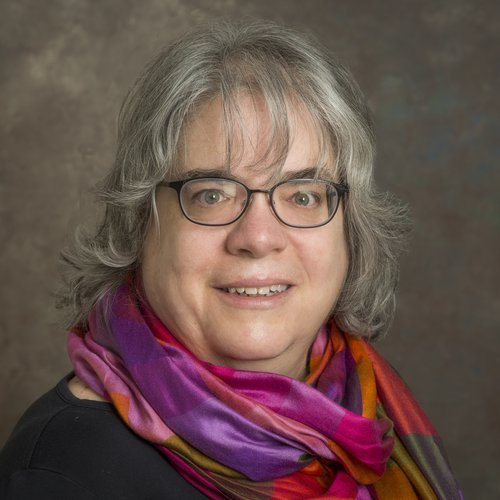
Karen Rosenberg
Professor of Anthropology
University of Delaware

Dr. Rosenberg’s service has been transformative within the field of biological anthropology. To understand the context in which she began her professional service, one must recognize the challenges faced by women who entered the male-dominated “killer ape” culture of paleoanthropology during the early 1980s. As an early career scientist, Dr. Rosenberg chose a research topic that had been largely ignored by those studying fossil hominins: childbirth. We recognize today that this topic is biologically crucial. But it was an uphill battle for her and others of her generation, who faced the deeply flawed assumptions and prejudices of previous workers. Over three decades, Dr. Rosenberg, often working with long-time collaborator Wenda Trevathan, transformed the field’s understanding of the birth mechanism from the typological “obstetrical dilemma” of Sherwood Washburn toward a truly biological subject that articulates with developmental biology, health sciences, and behavioral ecology. By the 1990s, Dr. Rosenberg emerged as an organizer of workshops and conferences, which have served to include more voices into this area of biological anthropology.
Dr. Rosenberg has expanded the reach of paleoanthropology into the public sphere through her research and public outreach. Her scholarship has transformed the way that we think about childbirth and motherhood. She has been a major public presence of our discipline in communicating about evolution to the public, including popular articles in magazines such as Scientific American, appearance in television documentary productions, and web-based outreach efforts. Her work has brought countless people to a higher level of engagement with the science of human evolution and its role in health and medicine.
The Lasker Award recognizes individuals that have demonstrated excellence in service to the AAPA, its members, and the field of biological anthropology. Dr. Rosenberg’s record of organizational service is unparalleled. She has served the AAPA as President, Vice President, Executive Committee member, and Scientific Program Committee member, recently finishing her term as Past-President. As President, she led the organization toward deeper and more cross-cutting interactions across our increasingly specialized areas of research. She fostered many of the initiatives that have helped the AAPA respond effectively to a changing scientific landscape in recent years.
Most notable among those has been Dr. Rosenberg’s steadfast support of more open access to data and publications in the traditionally secretive field of paleoanthropology. She was the instigator of the plenary session at the 2012 AAPA meeting, which presented for the first time an open opportunity for members to handle and share casts of fossils not generally available to researchers. Her leadership in open access has been most evident in her long service as editor of the open-access journal PaleoAnthropology, which she helped to found in 2003. The field has come a long way toward recognizing the importance of access to the original data that underlie our scientific findings — most recently as recorded in a statement in the AJPA. I do not believe this progress would have been possible without the influential behind-the-scenes support of senior leaders of the AAPA, in which she played a key role.
Dr. Rosenberg is one of a handful of senior scientists who have supported and maintained a community of biological anthropologists across other major scientific organizations, including the AAA, the Paleoanthropology Society, the AAAS, and Sigma Xi. She has served as Secretary-Treasurer and Executive Committee member of the Biological Anthropology Section of the AAA, and has been recognized as an AAAS Fellow. In addition to her editorship of PaleoAnthropology, Karen has served on the editorial boards of several other journals, including Evolution, Medicine and Public Health and PLoS ONE. These many avenues of service to the profession have contributed above and beyond her service to the University of Delaware. There, she served as Chair of the Department of Anthropology for many years, concurrently with her service as editor of an international journal and executive roles within the AAPA. Few people have matched her record of service to the AAPA. Dr. Rosenberg has been at the forefront of recognizing other excellent senior scientists by writing nominations and advocating for awards within the AAPA, AAA, and AAAS. In an often-contentious field, Dr. Rosenberg is universally recognized for her kindness and generosity of spirit, and many excellent colleagues owe much to her tireless efforts.
Copyright © 2025 American Association of Biological Anthropologists.
Site programming and administration: Ed Hagen, Department of Anthropology, Washington State University